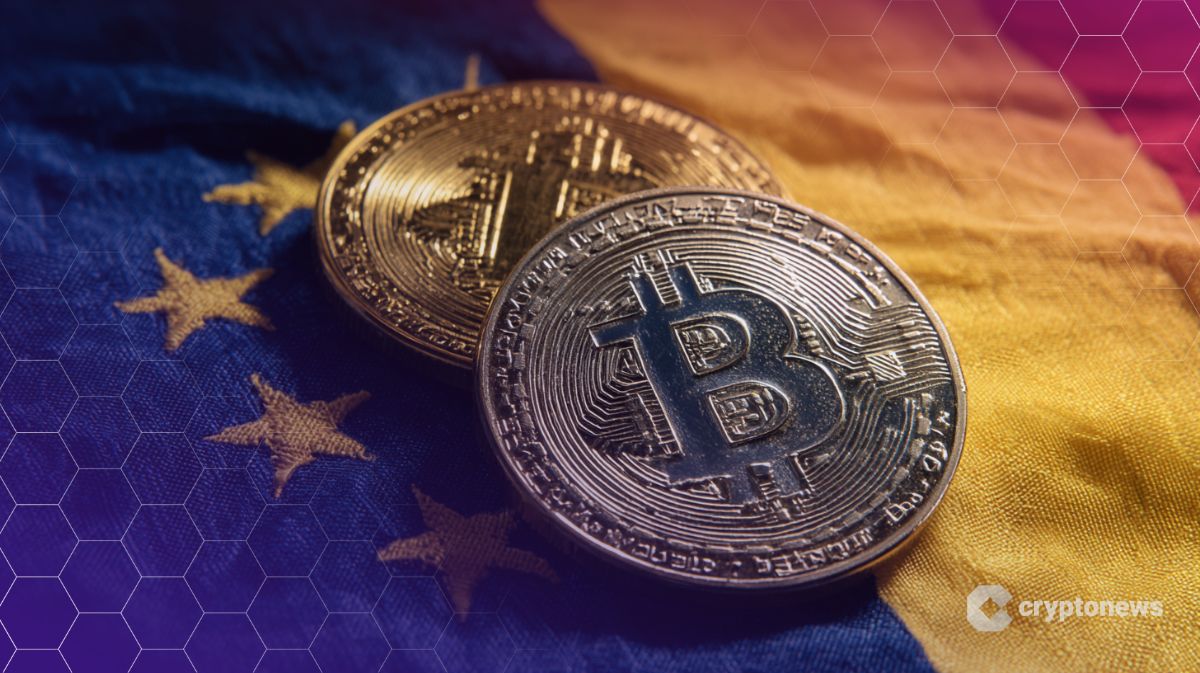
The European Union has sanctioned the Moldova-based A7 platform and pro-Kremlin influencer Simeon Boikov for using crypto to influence elections and evade sanctions.
Key Takeaways:
- The EU sanctioned A7 and Simeon Boikov for using cryptocurrency to meddle in elections.
- A7 issued a ruble-backed stablecoin designed specifically to bypass international sanctions.
- Investigations reveal complex networks moving funds to support sanctioned Russian activities.
Known as the “Aussie Cossack,” Boikov was sanctioned for spreading false pro-Russian narratives, including a fabricated video alleging voter fraud in the 2024 U.S. election.
His funding came through cash-to-crypto services, darknet markets, and Russian exchanges that bypass Know Your Customer (KYC) rules, according to a report released Tuesday by blockchain intelligence firm TRM Labs.
EU Targets A7 OOO for Vote-Buying in Moldova’s 2024 Elections
The sanctions also focus on A7 OOO, a company accused of directly influencing Moldova’s 2024 presidential elections and EU accession referendum through vote-buying schemes.
The EU linked A7 to Ilan Shor, a Moldovan oligarch and fugitive involved in the infamous 2014 bank fraud scandal that drained about $1 billion from the country’s economy.
TRM Labs revealed that A7 issued a ruble-backed stablecoin called A7A5, created explicitly to evade sanctions.
Stablecoins, cryptocurrencies pegged to traditional currencies, are often used for quick and cost-effective transactions with little price fluctuation.
Though media reports claim the A7A5 stablecoin moved $9.3 billion within just four months, TRM’s policy head for EMEA, Isabella Chase, cautioned there’s no official government confirmation of that figure.
However, she remarked that such a massive volume is unsurprising given the stablecoin’s purpose.
Chase added that despite the large sums, the number of entities using A7A5 remains relatively small compared to other stablecoins involved in sanctions evasion.
The platform was also used by Garantex, a sanctioned Russian exchange seized by the U.S. Secret Service in March, to transfer funds to Kyrgyz exchange Grinex, facilitating the movement of frozen assets abroad.
TRM Labs’ investigation highlights a sophisticated network of shell entities registered to residential addresses, enabling the covert transfer of funds and dual-use goods from China into Russia.
Chase explained that Western sanctions can indirectly pressure jurisdictions like Kyrgyzstan, affecting entities outside Europe or the UK but doing business with those regions.
The EU’s latest sanctions underscore growing international coordination. The UK had designated A7 months earlier, signaling increased global efforts to clamp down on Russian crypto-financial networks.
This intensified crackdown follows similar actions, such as the U.S. Treasury’s sanctions on the Russian bulletproof hosting provider Aeza Group, involved in ransomware and darknet markets.
Archetyp Market Shut Down in Europol Raid
In June, Europol dismantled one of the dark web’s longest-running marketplaces, Archetyp Market, following coordinated raids across six countries.
In a similar incident, the US law enforcement seized crypto linked to BidenCash, the infamous dark web marketplace, accused of selling over 15 million stolen credit cards and personal data.
The international operation took down around 145 darknet and traditional internet domains associated with the marketplace.
Additionally, the DOJ recently seized over $24 million in cryptocurrency from a Russian national accused of developing and operating the Qakbot malware.
Credit: Source link





